Federal Forests draw up forest balance sheet 2023: Climate crisis puts forests under further pressure
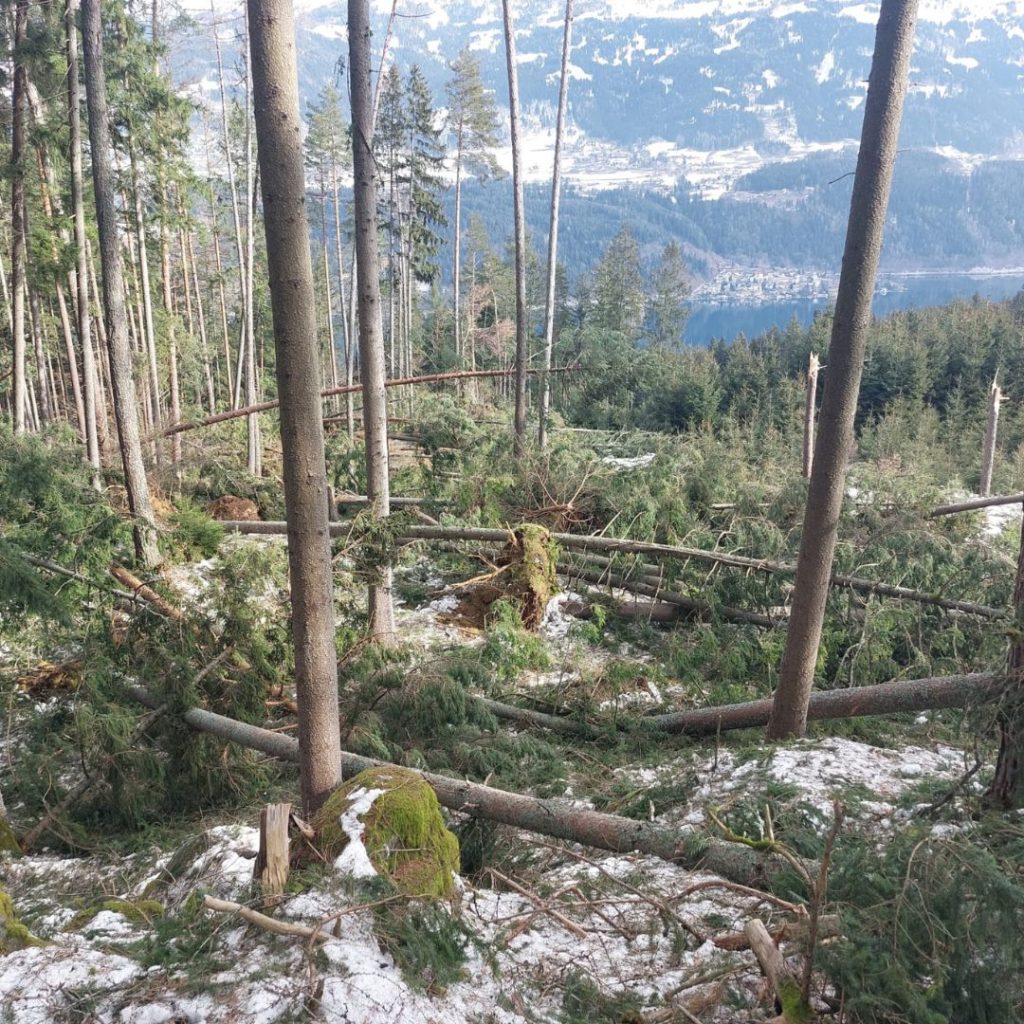
Climate change had a major impact on the federal forestry balance sheet in 2023. Damaged timber accounted for more than half of the total timber harvest and was therefore slightly higher than in the previous year. More than two thirds of this was caused by the bark beetle, which was active for a particularly long time due to the extremely warm autumn months. The year ended on a turbulent note due to storm Zoltan, which claimed a quarter of a million cubic meters of damaged timber. In order to make the forests climate-ready, the federal forests will invest 100 million euros in forest conversion and maintenance measures by 2030.
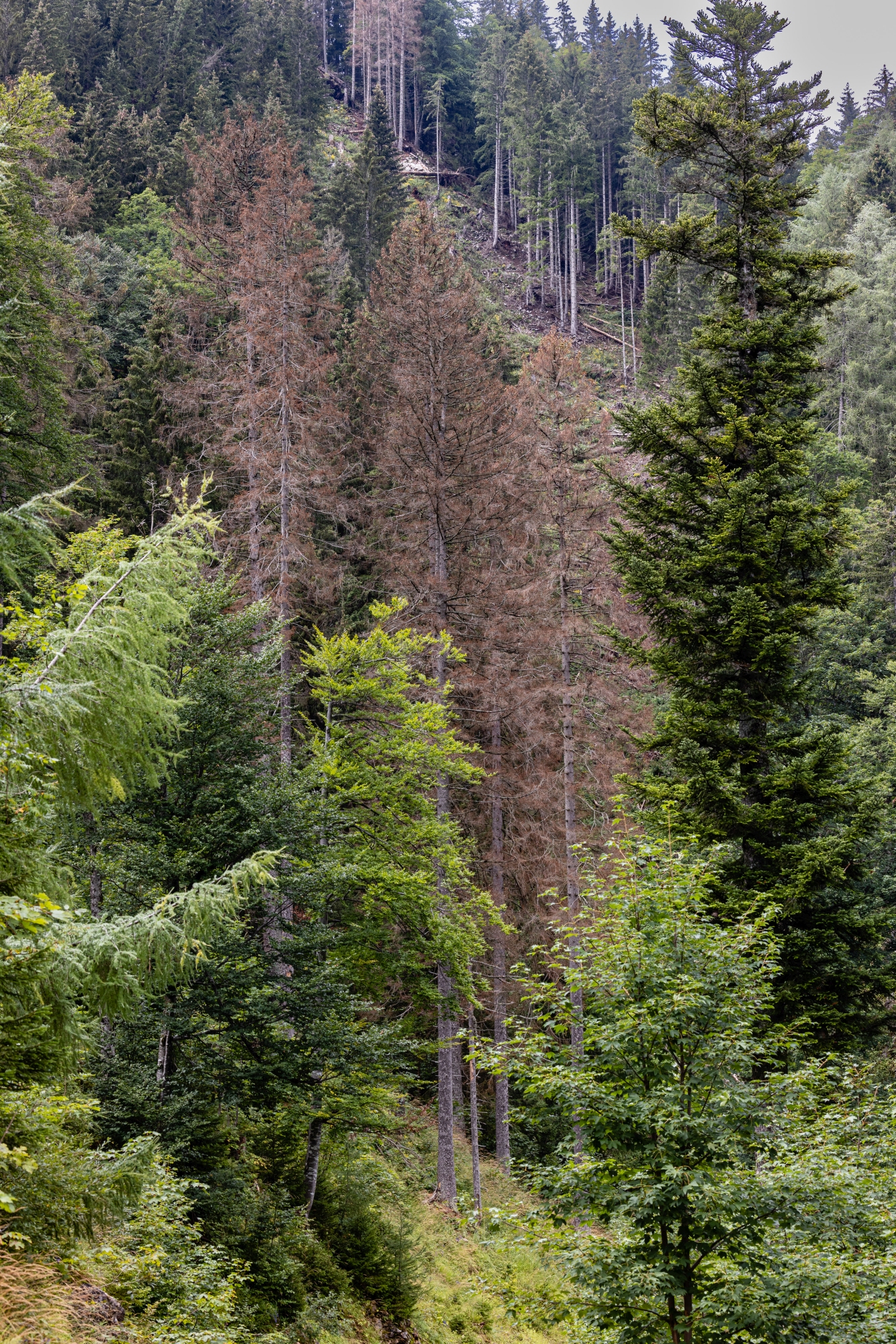
2023 once again broke several records in terms of climate: it is considered the warmest year worldwide and in Austria it was also the warmest year in recorded history, on a par with 2018. "The start of the forest year was characterized by a dry winter with little snow. Fortunately, a cool, rainy spring ensured a relatively good start to the vegetation period and delayed the start of the bark beetle season somewhat," says Georg Schöppl, CEO of the Austrian Federal Forests (ÖBf), looking back. "The heat in June and July was followed by a rainy August and thus a short breather for the forest before the fall brought record temperatures. As a result, the bark beetle was active for an unusually long time, in some places well into November. And shortly before Christmas, storm Zoltan showed us that the challenges would continue unabated," Schöppl continues.
More than one million cubic meters of damaged timber
The climatic conditions have a number of consequences.
- More than 1 million cubic meters or around 55 % of the total timber harvest of around 1.9 million cubic meters was damaged timber in 2023 (2022: around 50 %).
- More than two thirds of this, around 730,000 cubic meters, was caused by the bark beetle.
- Regional hotspots were around the Mölltal valley in Carinthia and in Upper Styria, where around half of the bark beetle damage was concentrated in a few forest districts.
- The long-term consequences of previous storms can be seen there: terrain that is difficult to access and locations that are sometimes unsafe for safety reasons are a challenging mix for the emergency teams.
- In all other ÖBf regions, the proportion of beetle wood was stable to declining.
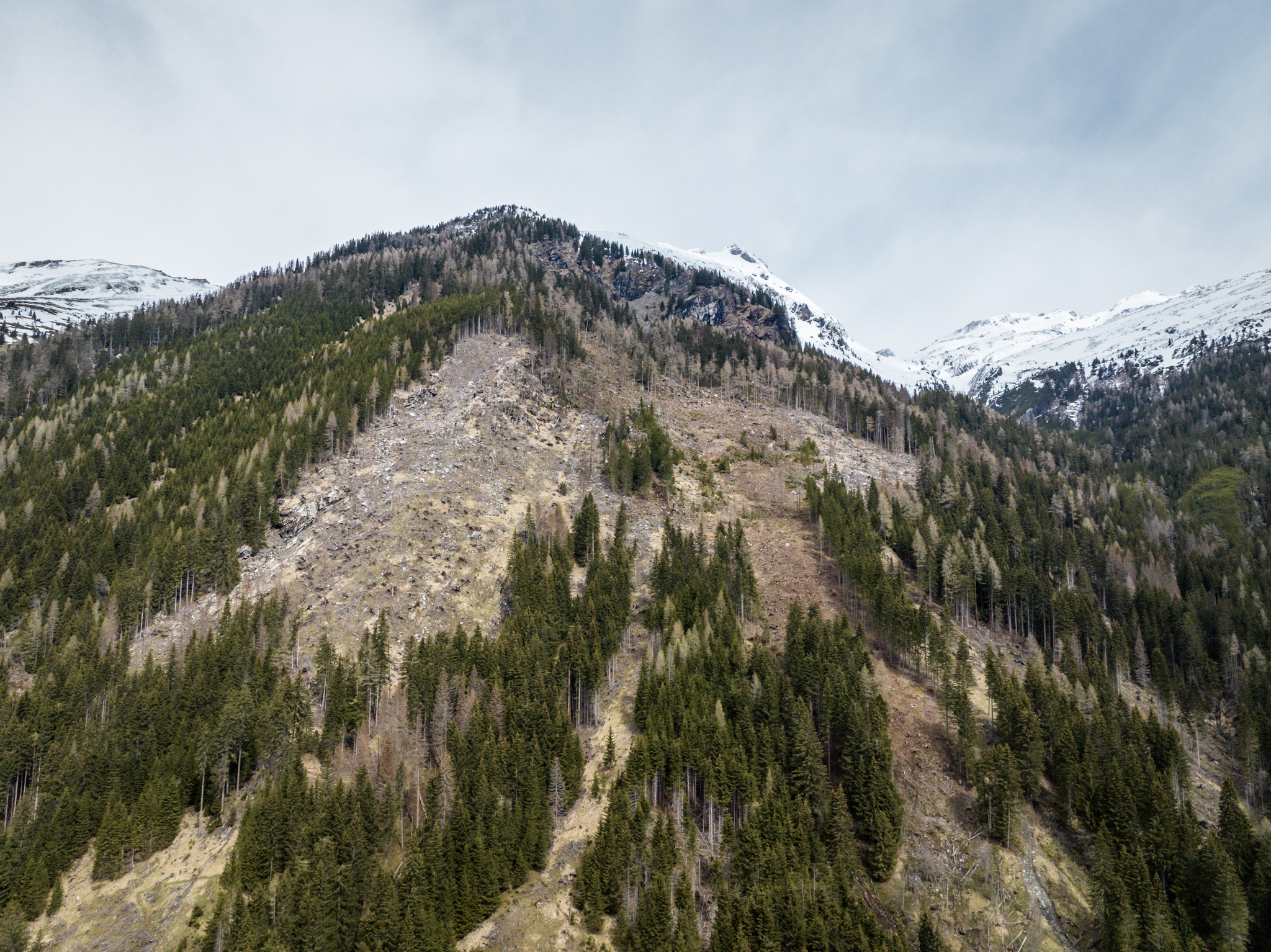
Damaged areas in Mallnitz, Upper Carinthia
"While the average proportion of damaged wood in the 1980s and 1990s was still just under 30 percent, we now have to consider a value of around 50 percent as normal as a result of climate change," reports Andreas Gruber, ÖBf Board Member for Forestry and Nature Conservation.
ÖBf's forest damage balance - i.e. the costs of beetle prevention and control, infrastructure damage, loss of contribution margin and storage costs for damaged timber - will total around EUR 32 million in 2023 (2022: EUR 28 million).
"It was very pleasing that we were able to maintain a stable timber price throughout the year despite the large volume of damaged timber. Bundesforste is a reliable partner that can act independently of sometimes very strong market fluctuations and offers security with long-term customer partnerships and contracts," says Gruber.
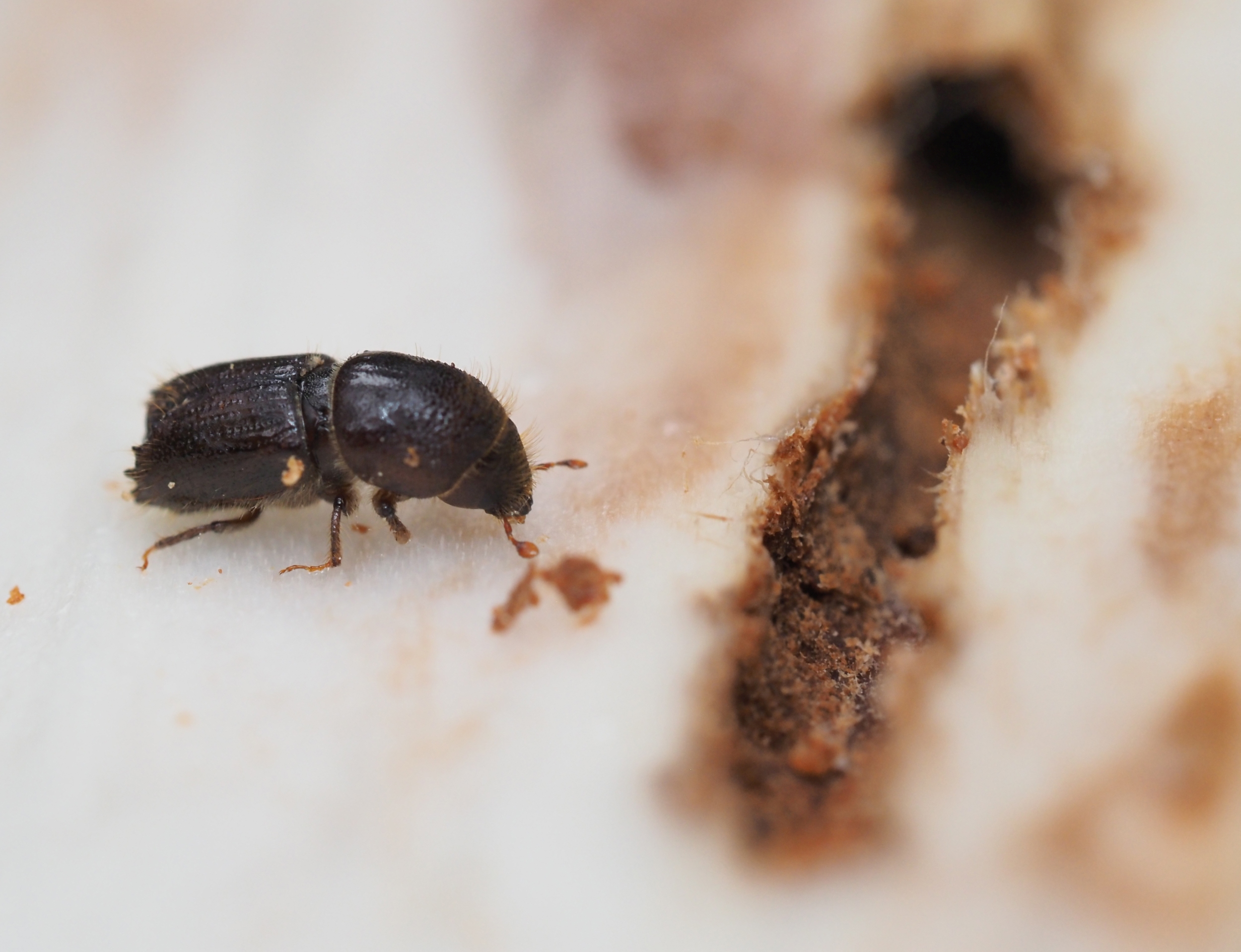
Continued strong focus on bark beetle control
The climate crisis with its higher temperatures favors the spread of the bark beetle, it can develop several generations per year and penetrates ever higher altitudes up to the tree line. In addition, trees under drought stress are less and less able to defend themselves. This makes intelligent bark beetle management all the more important - from early detection through comprehensive monitoring, the use of attractant traps and trapping trees to debarking trunks or the rapid removal of infested trees. "We were very well prepared and were able to start early in the year due to the dry winter. At just under 7 million euros, the expenditure for bark beetle control in 2023 was significantly higher than in previous years," explains Gruber.
Consistent forest management as a precaution for stable forests
"As the largest manager of natural areas in the country, we have a special responsibility. That is why we have been doing everything we can for several years to consistently drive forward forest conversion under the motto 'Forest of the Future' and make our forests climate-ready. In 2023, we have earmarked a total of around 15 million euros for forest maintenance work. Around 100 million euros are planned for this by 2030. Should the advancing climate change make even more necessary, the future of our forests is our priority," says Schöppl. The overriding principle for forest management remains sustainability: no more is harvested than will grow back.
At the same time, more measures must be taken to ensure stable and healthy forests, such as thinning. "Because an unmanaged forest is the damaged wood of tomorrow," warns Gruber. An internal forestry survey also shows that sustainable management is taking effect: the amount of wood on ÖBf areas is increasing, and in recent years the stock in the managed forest has risen by around one and a half million cubic meters.
Expansion of timber harvesting capacities for more flexibility
In addition to proactive forest conversion, the management of the climate crisis also includes the further expansion of in-house capacities for forest maintenance and timber harvesting. Gruber explains: "The shortage of personnel on the labor market is also being felt by timber harvesting companies. At the same time, the climate crisis is demanding more and more flexibility from us." There are plans to double the number of ÖBf's most important timber harvesting machines, the cable cranes. This will be accompanied by a step-by-step increase in the number of forestry specialists on the ground. In total, this will involve an additional investment volume of around 4 to 5 million euros over the next three to five years.
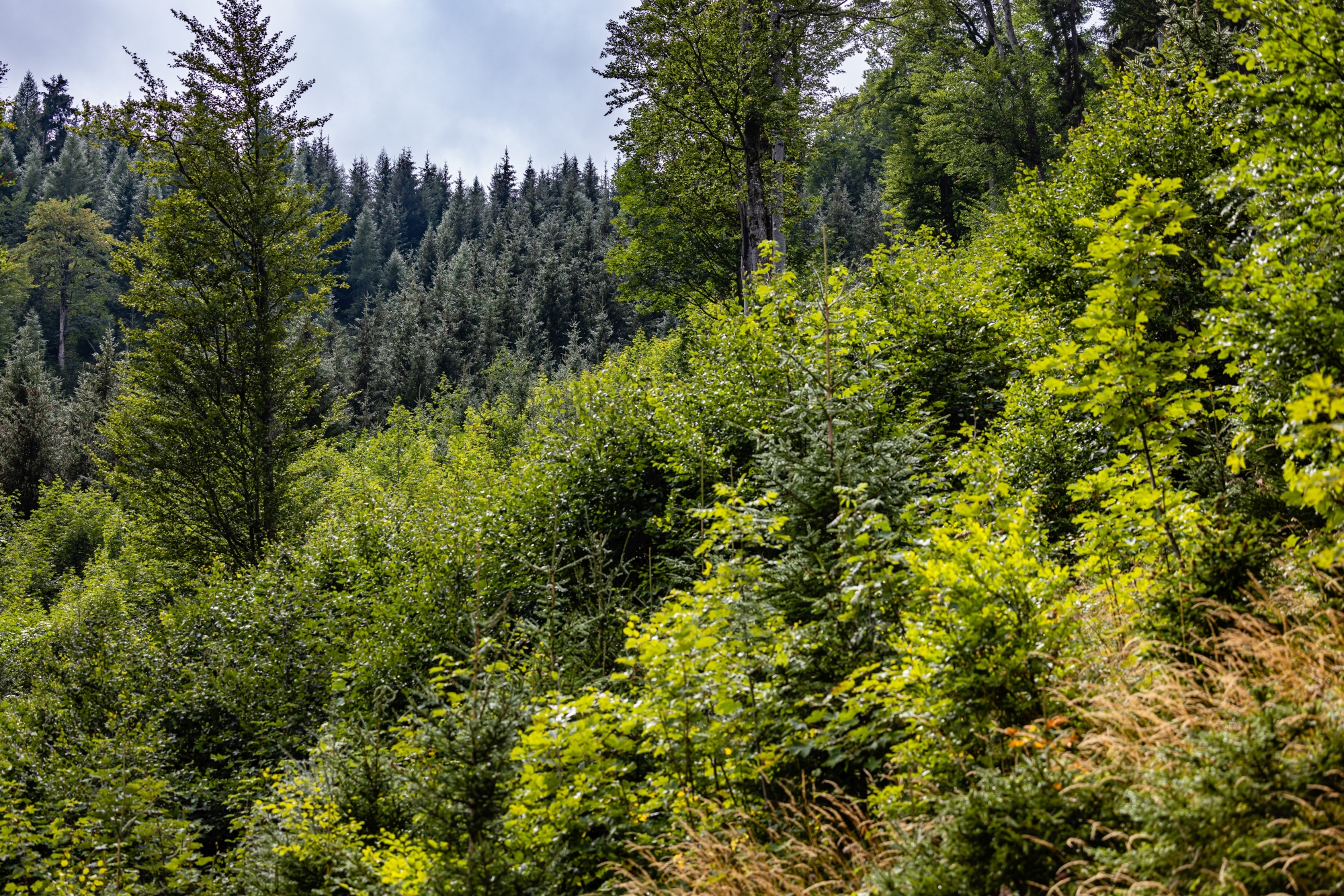
Conversion to species-rich mixed forests
"We know that the challenges posed to us by nature and the climate are far-reaching and are not getting any less. The storm Zoltan made this very clear to us again around Christmas and brought us around 250,000 meters of damaged timber. This makes it all the more important to convert to species-rich mixed forests. We are convinced that only a forest that is managed in a natural and sustainable way can best meet the ecological, economic and social demands that we humans place on it in the long term," concluded the board members.
Cover photo ©️ ÖBf-Archiv/ M. Wielscher
Bark beetle damage ©️ÖBf-Archiv/ F.Lindmoser
Damaged areas in Mallnitz ©️ÖBf-Archive/ G. Perauer
Bark beetle Photo ©️ÖBf-Archive/ G.Moser
Forest of the future ©️ÖBf-Archive/ F.Lindmoser






